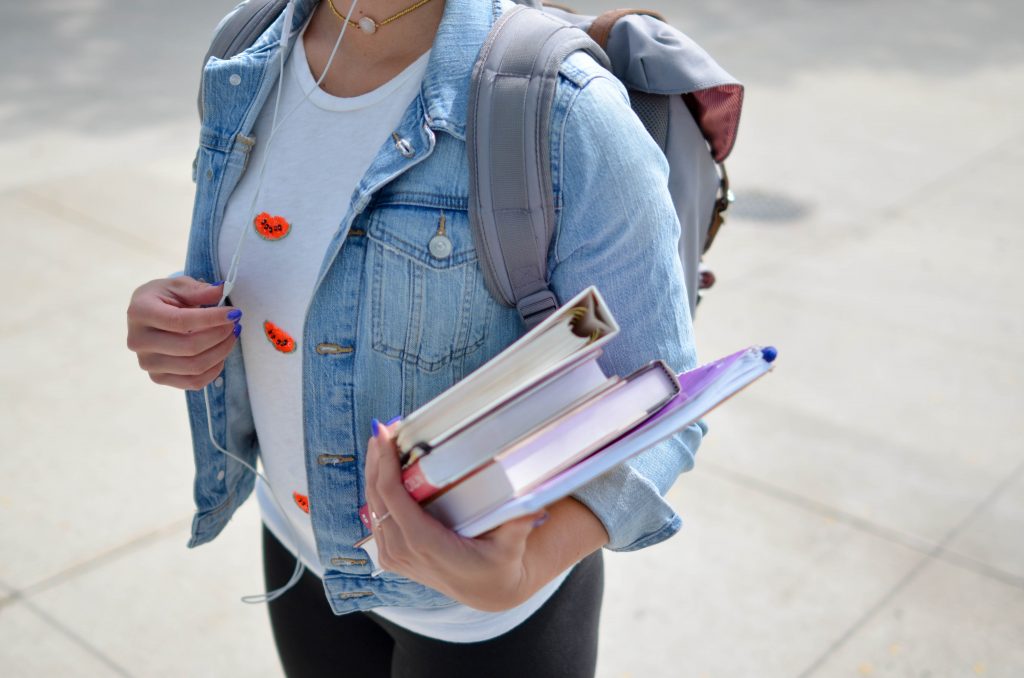Every year, thousands of international students travel to the United States in pursuit of higher education because they understand the importance of college degree nowadays. Despite political and economic challenges that sometimes complicate migration, the number of foreign students in American universities remains consistently high, exceeding one million.
For many students, the cost of education in the U.S. can be a significant barrier, leading some to consider alternative destinations such as the UK, Europe, or Asia. However, several top-tier universities in the U.S. offer need-blind admissions and full-need financial aid to qualified international students, making high-quality education more accessible. Of course, you will have to prove your candidature is the best fit for costly American universities, and expert scholarship essay examples can really come in handy if you have no idea how to craft a winning piece, especially in a foreign language.
Among the best schools for international students are Princeton, Yale, Massachusetts Institute of Technology (MIT), Harvard, and Amherst College. These institutions are renowned not only for their academic excellence but also for their ability to open doors to incredible career opportunities—but it’s equally important to consider the price of a U.S. Bachelor’s degree when planning your international education journey.
If you are an ambitious student looking for the best academic environment in the U.S.or need to know more about Kell High School, here are 10 additional prestigious colleges and universities worth considering.
Columbia University
Located in Upper Manhattan, New York City, Columbia University is one of the most prestigious Ivy League institutions. Since its founding in 1754, Columbia has produced three U.S. presidents, numerous Nobel laureates, and some of Hollywood’s most celebrated figures.
The university comprises 20 schools and multiple research institutes worldwide, offering top-tier programs in a variety of disciplines. With a faculty and student body exceeding 7,800 members, Columbia provides an intellectually rich and diverse learning environment. For prospective students aiming to make a strong impression during the application process, seeking professional college essay help can make a significant difference in crafting a compelling and effective submission.
California Institute of Technology (Caltech)
Caltech is a global leader in science and engineering education, attracting students who are passionate about technical research and applied sciences. The university is home to cutting-edge initiatives such as the Einstein Paper Center, which preserves and publishes Albert Einstein’s writings.
Beyond science and engineering, Caltech provides opportunities in music, theater, and the visual arts. Its research-driven approach encourages students to push the boundaries of innovation, including projects aimed at generating fuel from solar energy.

Cooper Union for the Advancement of Science and Art
For students passionate about the arts, architecture, and engineering, Cooper Union in Manhattan is an excellent choice. As one of the oldest higher education institutions in the U.S., it offers rigorous programs designed to cultivate both creativity and technical expertise.
Visual arts remain the institution’s strongest focus, with an interdisciplinary curriculum that includes humanities and social sciences. Students gain not only artistic skills but also the critical thinking abilities necessary for success in various creative fields.
Stanford University
Situated in the heart of Silicon Valley, Stanford University is often referred to as a “billionaire factory” due to its remarkable list of alumni, including Google co-founders Sergey Brin and Larry Page.
With one of the largest campuses in the U.S., Stanford attracts top international talent, offering diverse programs ranging from technology and engineering to literature and law. The university fosters a culture of innovation, making it a prime choice for students eager to shape the future.
Babson College
If you’re an aspiring entrepreneur or business leader, Babson College could be the perfect fit. Established in 1919, Babson has built a reputation for encouraging innovation and creativity in business education.
Located near Boston, the college provides students with numerous extracurricular activities, from cultural events to sporting opportunities. Babson’s business-focused curriculum ensures that graduates are well-equipped for leadership roles in the corporate world.

University of Pennsylvania (UPenn)
An Ivy League institution known for its emphasis on interdisciplinary studies, the University of Pennsylvania offers a range of unique double-degree programs and flexible academic pathways.
UPenn’s rigorous programs in the arts and sciences attract top students worldwide. Beyond academics, the university provides a vibrant campus life filled with sports, cultural events, and social activities, ensuring that students enjoy a well-rounded experience.
Why Study in the U.S.?
Studying in the U.S. is about more than just academics—it’s an opportunity to gain access to world-class research facilities, establish valuable global connections, and experience a diverse cultural environment. By the way, if you need to learn about the latter, check out this 5-paragraph essay on American culture. Whether you aim to work in business, technology, or the arts, a degree from a top American university can open doors to career opportunities worldwide.
For students concerned about financial costs, many of these institutions offer scholarships, grants, and work-study programs to help ease the burden of tuition fees. Need-blind admissions policies ensure that talented students, regardless of their financial background, have a chance to study at some of the best universities in the world.
If you’re planning to pursue your education in the U.S., research your options carefully, explore financial aid opportunities, and prepare for a rewarding academic journey that could shape your future.
FAQ: Studying in the U.S. as an International Student
1. How can international students afford tuition at top U.S. universities?
Many prestigious universities offer need-blind admissions and full-need financial aid to qualified international students. Additionally, scholarships, grants, and work-study programs help make tuition more manageable.
2. Do international students have access to work opportunities in the U.S.?
Yes, students on F-1 visas can work part-time on campus during the academic year and may be eligible for Optional Practical Training (OPT) or Curricular Practical Training (CPT), allowing them to gain work experience related to their field of study.
3. What are the admission requirements for foreign students?
Each university has specific requirements, but most U.S. colleges require:
- SAT or ACT scores (browse our SAT essay topics to get prepared)
- TOEFL or IELTS (for non-native English speakers)
- Letters of recommendation
- Personal statement or essay
- Academic transcripts
4. Are there any challenges international students might face in the U.S.?
Cultural adjustment, homesickness, and language barriers can be challenges for international students. However, most universities offer resources such as counseling services, student organizations, and mentorship programs to help students adapt.
5. What is the best way to choose a university in the U.S.?
Consider factors such as:
- Financial aid availability
- Programs offered in your field of interest
- Location and campus culture
- Post-graduation career opportunities
6. Can international students apply for internships in the U.S.?
Yes, many universities and colleges in Washington have internship programs that allow international students to gain professional experience. Through OPT and CPT, students can work in internships related to their studies, often leading to full-time job opportunities after graduation.
7. How competitive is the admission process for international students?
Admission to top universities is highly competitive, but strong academic performance, compelling personal statements, and extracurricular involvement can significantly increase a student’s chances.
Final Thoughts
Pursuing higher education in the United States can be a transformative experience for international students. With access to world-renowned universities, cutting-edge research, and an international network of professionals, studying in the U.S. provides unmatched academic and career advantages.
While tuition fees can be daunting, many institutions are committed to making education accessible through scholarships and financial aid. By carefully selecting one of the Los Angeles universities for international students and planning ahead, students can make the most of their education and set themselves up for success in the global job market.
If you’re considering studying in the U.S., start researching early, prepare thoroughly, and embrace the opportunities that come with being part of an international academic community. As you go through the application process, don’t forget to prepare for every possible college interview questions—they can play a key role in making a strong impression. The right university can be your gateway to an exciting and successful future.
These articles might also interest you





